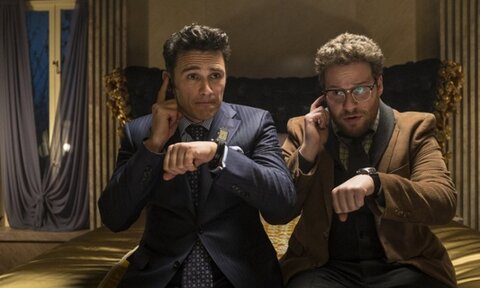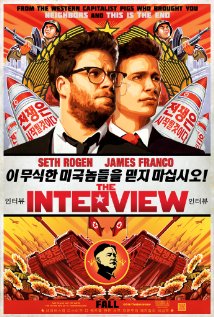A spokesperson for the government of the DPRK said in a statement to state-run media that North Korea would reap “merciless” retaliation on the US for the “act of war” and “wanton act of terror” by a “gangster filmmaker.”
In the film, the two actors star as journalists ordered by the CIA to assassinate Kim Jong-Un, the leader of the Democratic People’s Republic of Korea.
DPRK’s foreign ministry spokesperson told the Telegraph this week: “There is a special irony in this story line as it shows the desperation of the US government and American society.”
“A film about the assassination of a foreign leader mirrors what the US has done in Afghanistan, Iraq, Syria and Ukraine,” he continued. “And let us not forget who killed Kennedy- Americans. In fact, President Obama should be careful in case the US military wants to kill him as well.”
The spokesperson went on to dismiss all Hollywood films as being “full of assassinations and executions” and expressed that British films are better and more realistic.
“James Bond is a good character and those films are much more enjoyable,” he said.
(Ironically, in Die Another Day, Pierce Brosnan stars as Bond battling North Korean forces.)
The Interview is set to be released October 14, 2014 and neither the White House nor Rogen or Franco have issued a response to the DPRK’s statement.
“Apparently Kim Jong Un plans on watching #TheInterview. I hope he likes it!!” tweeted Rogen.
This would not be the first Hollywood film that stirs controversy amongst world leaders. Let’s remember several other American films that have not been received well by the nations and leaders they depict.
District 9 (2009)
This allegorical film about aliens by Neill Bloomkamp seemed to depict apartheid-era South Africa if you read between the lines. It may have been nominated for four Oscars, but the Nigerian government was not so fond. The Nigerian government was upset that “the name of our former president was clearly spelt out as the head of the criminal gang and our ladies shown like prostitutes sleeping with extra-terrestrial refugees.” The film was banned in Nigeria.
Argo (2013)
The film depicting the story of the American hostages held in Tehran during the 1979 Iranian hostage crisis and the CIA’s attempts to rescue them was the winner of the Best Picture Oscar in 2013. Although Americans and Iranians alike criticized the movie for its historical inaccuracies, the Iranian government released a statement calling the film “an offensive act” with “evil intentions.” The film was banned in Iran and the Iranian government vowed to produce a film portraying their version of the story in January 2013. There have been few updates about the project since.
Borat (2006)
It’s hard to find somebody that British comedian Sacha Baron Cohen’s misogynistic, homophobic, anti-Semitic character Borat does not offend. Upon hearing initial reports about the 2006 film Borat, the government of Kazakhstan was not pleased. “We do not rule out that Mr. Cohen is serving someone’s political order designed to present Kazakhstan and its people in a derogatory way,” they said. They later softened their views towards the film and credited it with attracting tourists to Kazakhstan.


